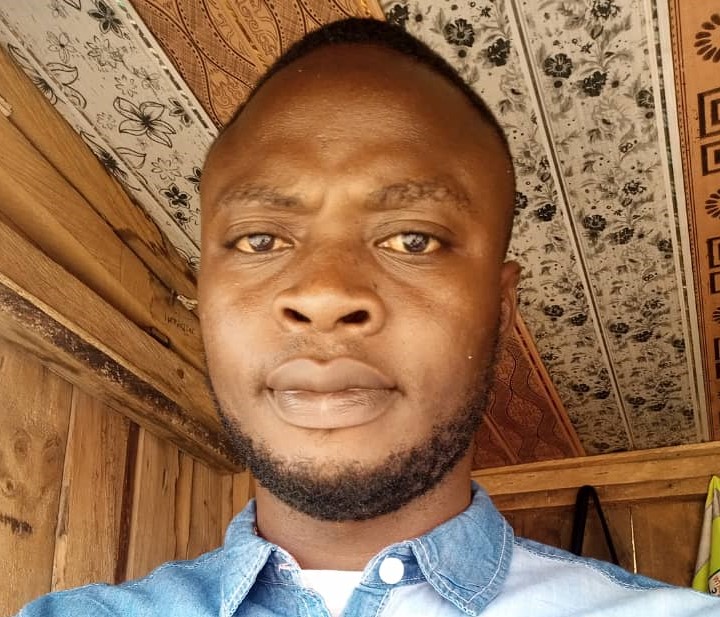Adunni Ade Finds Speaking Yoruba Draining, Advocates for English Dominance in Nigeria
Nollywood actress, Adunni Ade, sparked significant conversation with her recent comments on language preference in Nigeria, particularly highlighting her struggle with the Yoruba language. During her appearance on Channels Television’s programme, Morning Brief, Ade, who was born to a German-American mother and a Nigerian father of Yoruba descent, shared her personal experiences and linguistic preferences, stirring a mix of reactions from the Nigerian public and beyond.

Language and Identity
Adunni Ade’s remarks underscore a broader debate on language, identity, and cultural preservation within Nigeria. Her assertion that speaking Yoruba ‘is draining’ and ‘sometimes it hurts my nerves’ not only reflects her personal struggle but also touches on the linguistic diversity and the status of English as Nigeria’s lingua franca. Ade’s preference for English over indigenous languages sparks questions about the effects of colonial legacies on language use and preference in post-colonial societies.

Cultural Integration and Challenges
The actress also highlighted her appreciation for her father’s decision to bring her to Nigeria to learn about her culture, language, and everything Nigerian. This part of her statement brings to light the complexities of cultural integration for individuals with multicultural backgrounds. Despite her challenges with the Yoruba language, Ade’s experiences reflect a broader narrative of navigating multiple cultural identities and the desire to connect with one’s heritage, while also dealing with the practical challenges of language acquisition and usage.
Public Reaction and Societal Implications

Ade’s comments have ignited various responses, ranging from support for her honesty to criticism for seemingly undermining the importance of Nigeria’s indigenous languages. This debate is significant, as it highlights ongoing conversations about national identity, language policy, and the importance of preserving linguistic diversity in the face of globalisation and the dominance of English. It also raises important questions about the role of language in cultural preservation and the potential consequences of prioritising one language over others in a multilingual society.
Adunni Ade’s candid disclosure about her linguistic preferences and challenges has opened up important discussions on language, identity, and cultural preservation in Nigeria. As the nation continues to navigate its complex linguistic landscape, Ade’s experiences and the ensuing public debate underscore the need for thoughtful consideration of language policies that respect and promote linguistic diversity while acknowledging the practical realities of language use in contemporary society. Ultimately, this conversation invites reflection on the ways that languages can both connect us to our heritage and present challenges in our daily lives.















What i dont understood is in reality how youre now not really a lot more smartlyfavored than you might be now Youre very intelligent You understand therefore significantly in terms of this topic produced me personally believe it from 안전놀이터a lot of numerous angles Its like women and men are not interested except it is one thing to accomplish with Woman gaga Your own stuffs outstanding Always care for it up
Thank you for the auspicious writeup It in fact was a amusement account it Look advanced to far added agreeable from you However how can we communicate
Disposable vape Products bundles typically come with a fully charged battery. This means you can start vaping immediately without the need to worry about charging cables or finding power outlets.
Discover the ZYN buzz—read What Do Zyns Feel Like.
The disposable vape was good for quick use, but I wish it lasted a bit longer. Flavor was solid though – I’ll still buy again for emergencies – https://relxnn.com/exploring-the-lost-vape-orion-bar-a-flavorful-innovation-in-vaping/
This vape device offers amazing value. It’s powerful, customizable, and super easy to use. I love the airflow control and wattage settings—it really lets you tailor your experience. The display is crisp and gives all the info you need at a glance. Plus, it feels really solid in the hand. I’ve been using it daily and haven’t had a single issue. This is the kind of device you stick with long-term. If you want something dependable and stylish, this is the vape device for you. –
Easy-To-Use Vape Pod System
I love how simple and efficient this pod system is. Just pop in a pod and go. Great for beginners or anyone who wants hassle-free vaping. Flavor is rich and clean, and it lasts longer than I expected. Battery is fast-charging too. It’s reliable and super portable. I take it everywhere.
I’ve tried so many vape disposable brands, but this one wins hands down. The vapor is rich, and the e liquid vape doesn’t leave a weird aftertaste. Easily the best vape I’ve had this year. Highly recommend the mango and grape—two of the top vape flavors!
Hey! I just wanted to ask if you ever have any trouble with hackers? My last blog (wordpress) was hacked and I ended up losing many months of hard work due to no backup. Do you have any methods to stop hackers?
I’ve read a lot about this topic, but the way you explained it made everything click for me. It’s refreshing to come across content that’s both informative and relatable.
This was such a good read. I found myself thinking about it long after I finished. Thanks for putting your thoughts out there—it really made an impact on me.
You brought up some really interesting points I hadn’t thought about before. I appreciate how you make your content thought-provoking without being overwhelming.
I always enjoy the calm and clarity your posts bring. This one especially stood out—thanks for sharing your perspective and helping me see things in a new light.
Discover the fantasy that grips—explore knot sex.
Vape pods are compact, user-friendly devices that use pre-filled or refillable e-liquid cartridges. Ideal for beginners and on-the-go vapers, vape pods offer a balance between performance and portability. They often use nicotine salt e-liquids for a smoother throat hit and faster nicotine delivery. With sleek designs and minimal maintenance, vape pods are perfect for discreet vaping
E-Liquid are compact, user-friendly devices that use pre-filled or refillable e-liquid cartridges. Ideal for beginners and on-the-go vapers, vape pods offer a balance between performance and portability.
I’m switching to lost mary vape full-time — that good.
Highly recommend checking out vape juice depot if you’re looking for variety.
Switched to a no nicotine vape and haven’t looked back.
fascinate este conteúdo. Gostei bastante. Aproveitem e vejam este site. informações, novidades e muito mais. Não deixem de acessar para se informar mais. Obrigado a todos e até mais.
amei este site. Pra saber mais detalhes acesse o site e descubra mais. Todas as informações contidas são informações relevantes e diferentes. Tudo que você precisa saber está ta lá.
Este site é realmente fascinate. Sempre que acesso eu encontro coisas diferentes Você também vai querer acessar o nosso site e saber mais detalhes! informaçõesexclusivas. Venha descobrir mais agora!
fabuloso este conteúdo. Gostei bastante. Aproveitem e vejam este conteúdo. informações, novidades e muito mais. Não deixem de acessar para saber mais. Obrigado a todos e até a próxima.
You made some good points there. I did a search on the subject and found most persons will consent with your site.